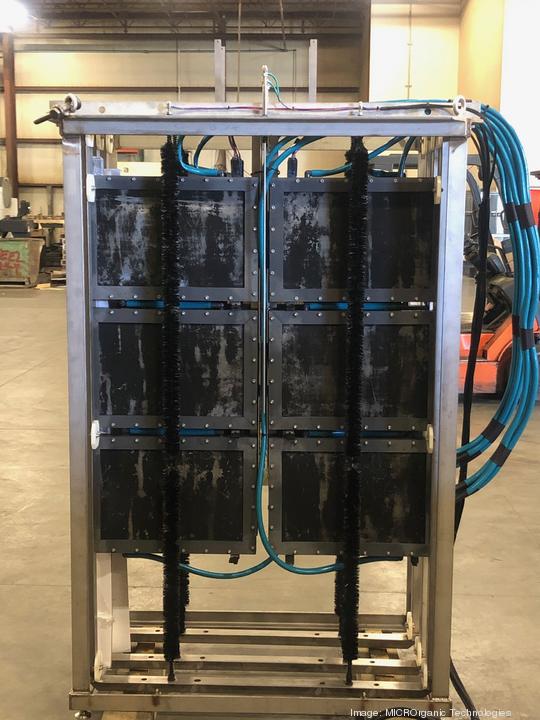
Brent Solina started developing a next-generation wastewater treatment system in 2009 while he was still studying biochemistry and biophysics at Rensselaer Polytechnic Institute.
By 2015, the startup MICROrganic Technologies had gotten some investments and was working toward commercialization. But the lack of a solid path led the startup to fail, said Carol Maxwell, a member of Eastern New York Angels and one of the startup’s early investors.
Despite the team’s rough start, Maxwell and the other small group of investors — all with a tech background — still saw promise in what Solina had been developing.
“When the company failed, this small group of us got together ... and we thought that there's enough there that we should resuscitate the company,” Maxwell said.
Maxwell took over as CEO, and Solina took the role of chief technology officer.
The first step was to make sure the startup didn’t run out of steam again.
“We created a real road map with Brent,” Maxwell said. “We had a very clear focus.”
Now, with a couple of pilot customers and a more solidified business plan, the startup is preparing to raise $1 million to support the next step toward commercialization and hire workers.
The module that the startup has created harnesses electricity-producing microbes to break down wastewater more efficiently than traditional systems, she said. The device is also connected to a software program that shows real-time data about the activity in the system, something that doesn't exist right now.
MICROrganic is focusing first on the food and beverage industry. Through the New York State Energy Research and Development Authority, the startup has been working with a brewery that has said it wants to become a customer, Maxwell said. It's also starting a pilot with Anheuser-Busch later this year at one of the brewer's plants in central New York.
Breweries create wastewater that’s a lot stronger than typical sewer water, which means municipalities have to spend more money to treat it. Because many wastewater treatment plants have aging infrastructure from the 1970s, many of them have been asking breweries to pay more money for the wastewater they produce, which is why it would financially benefit those companies to begin the treatment process in house, Maxwell said.
Down the road, there are plans to offer the system to municipal wastewater plants, typically late adopters of new technology, she said.
Plants currently have to spend a lot of energy blowing air into wastewater to feed oxygen to microbes. It equates to about $2 billion in annual electric costs, according to a 2018 report by the U.S. Department of Energy. The MICROrganic system would reduce energy use at individual plants by about 90%, Maxwell said. And for large plants, the microbes would create a significant amount of electricity.
“Not only can they do the wastewater treatment with almost no energy use — in addition to that, they're pushing out electrons," Maxwell said.
The startup is one of 12 finalists for a $50,000 FuzeHub competition. Maxwell expects MICROrganic will be ready for the public fundraising round in the next eight months or so. And she expects a commercial product to be ready probably in the second quarter of next year.
"I expect that after Anheuser-Busch, our product will be not a prototype but a product."



